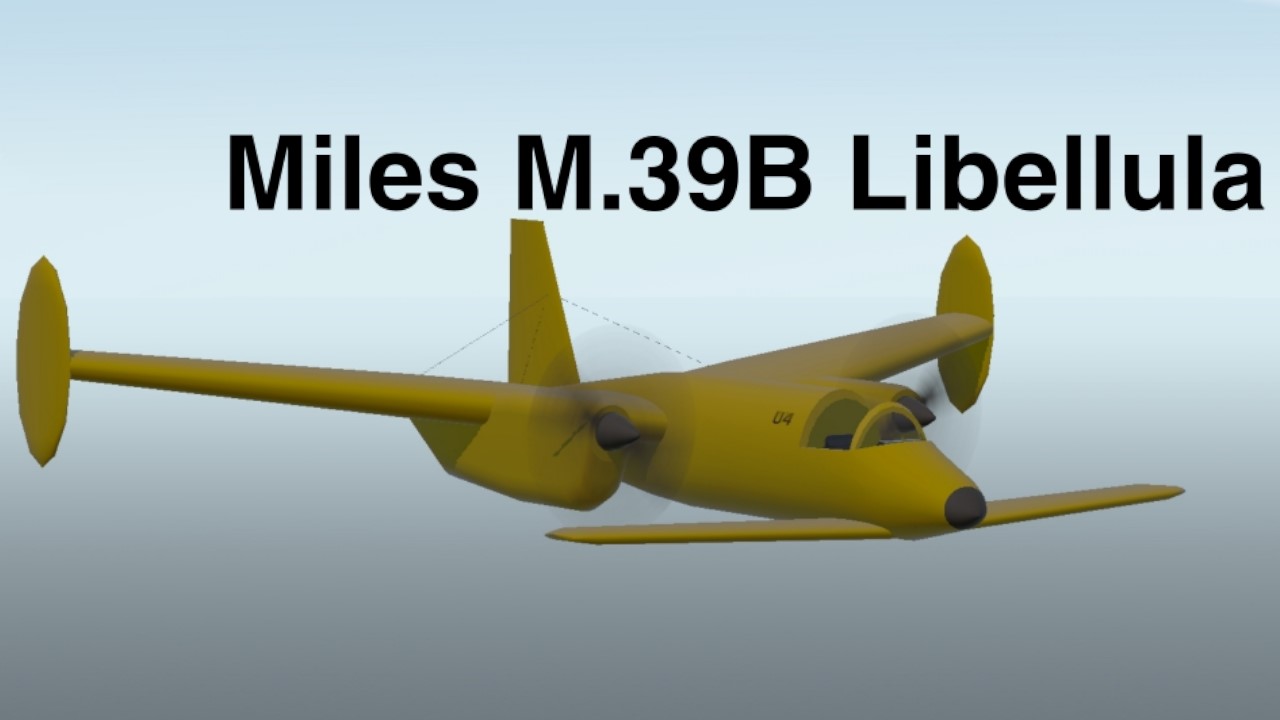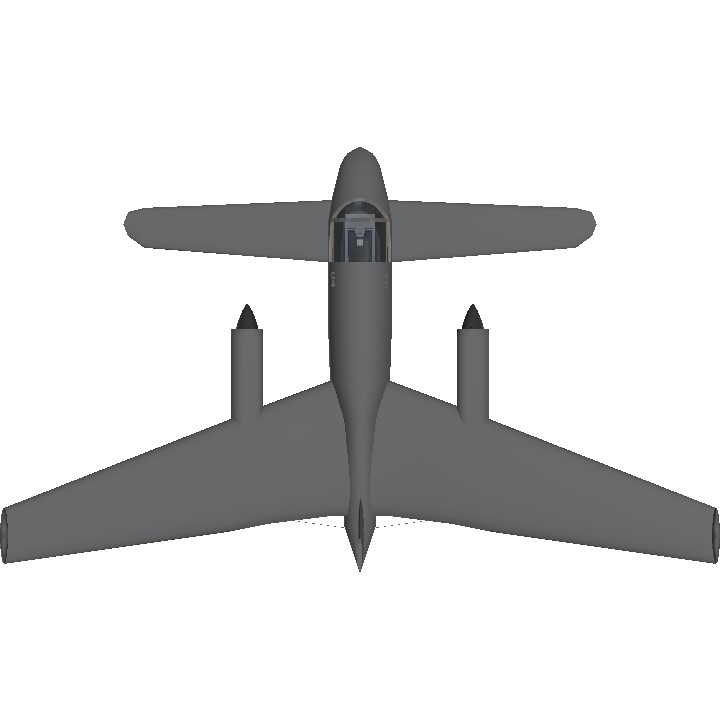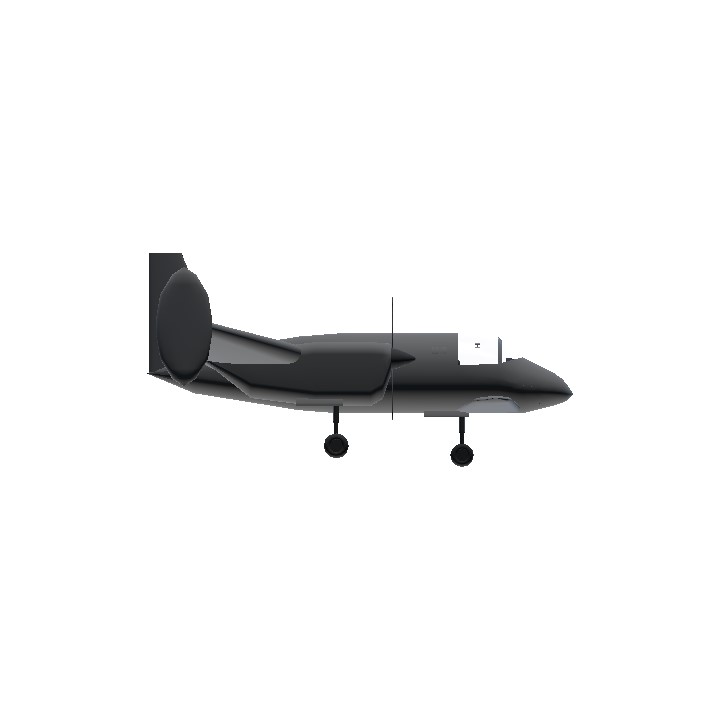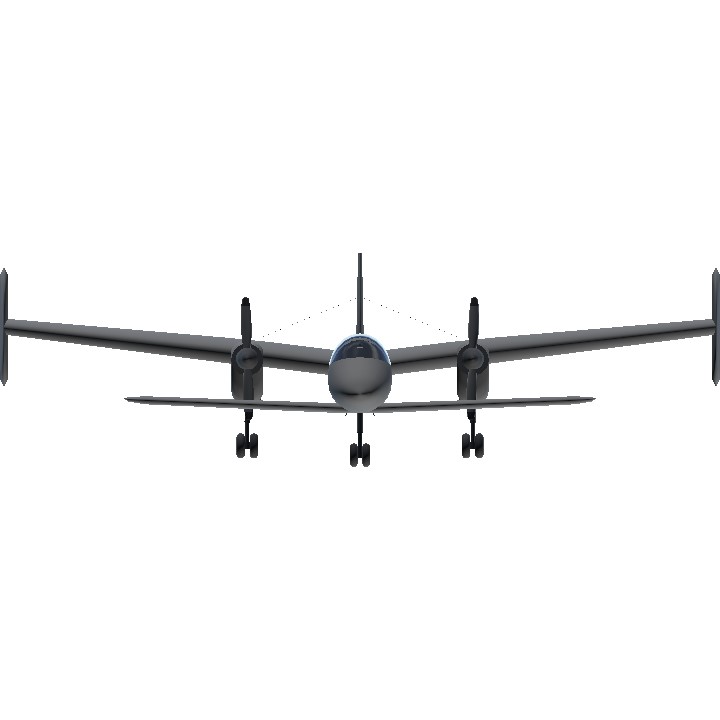The Miles M.39B Libellula was a British experimental aircraft designed during World War II to test the viability of a tandem-wing configuration for naval aircraft. Developed by Miles Aircraft, it was a smaller, scaled-down prototype of the larger M.39, which was intended to serve as a carrier-based bomber.
Design and Features:
The M.39B featured a tandem-wing layout, with a larger rear wing and a smaller forward wing. This unconventional design aimed to improve forward visibility for carrier landings and offer better weight distribution and control. The aircraft was powered by a single de Havilland Gipsy Major engine, mounted in a pusher configuration at the rear of the fuselage.
The cockpit was positioned at the very front of the aircraft, providing an unobstructed view for the pilot. Its tricycle landing gear was a rare feature for the time, enhancing stability during takeoffs and landings, particularly on carrier decks.
Purpose:
The M.39B was constructed specifically as a testbed to explore the aerodynamic characteristics of the tandem-wing configuration. The concept was considered promising for carrier operations because it theoretically reduced stall speeds, improved lift, and allowed for shorter takeoff and landing distances.
Performance:
While the M.39B was innovative, its flight testing revealed several challenges, including stability and control issues. The tandem-wing layout caused aerodynamic interference between the front and rear wings, leading to unpredictable behavior in certain conditions. These issues, combined with the rapid advancements in conventional aircraft designs during the war, ultimately led to the cancellation of the Libellula project.
Legacy:
Despite its lack of success, the Miles M.39B Libellula remains an intriguing example of wartime aviation ingenuity. It demonstrated the willingness of designers to explore unconventional ideas in the pursuit of better performance, especially under the demanding requirements of naval aviation. Today, it stands as a testament to the innovative and experimental spirit of aircraft design during World War II.
Specifications
Spotlights
- Trainzo 10 days ago
- Calliope 9 days ago
- SomeSPGuyWhoLikesLore 9 days ago
General Characteristics
- Predecessor unknown plane challenge [OPEN]
- Created On Android
- Wingspan 36.9ft (11.3m)
- Length 21.9ft (6.7m)
- Height 11.0ft (3.3m)
- Empty Weight 5,842lbs (2,650kg)
- Loaded Weight 7,266lbs (3,295kg)
Performance
- Horse Power/Weight Ratio 0.275
- Wing Loading 33.8lbs/ft2 (165.3kg/m2)
- Wing Area 214.7ft2 (19.9m2)
- Drag Points 6489
Parts
- Number of Parts 74
- Control Surfaces 7
- Performance Cost 420





Design: 10/10
Unknowness: 5.9/10
Similarity: 10/10
Unique feature: 4/10
Also the unique features are just bonus points
Total: 29.9
Correct me if im wrong
Epic, rate it later somewhat
BRITAIN FOREVEERRRR!!!
Great plane , i love it .
@Cuboid4Dle